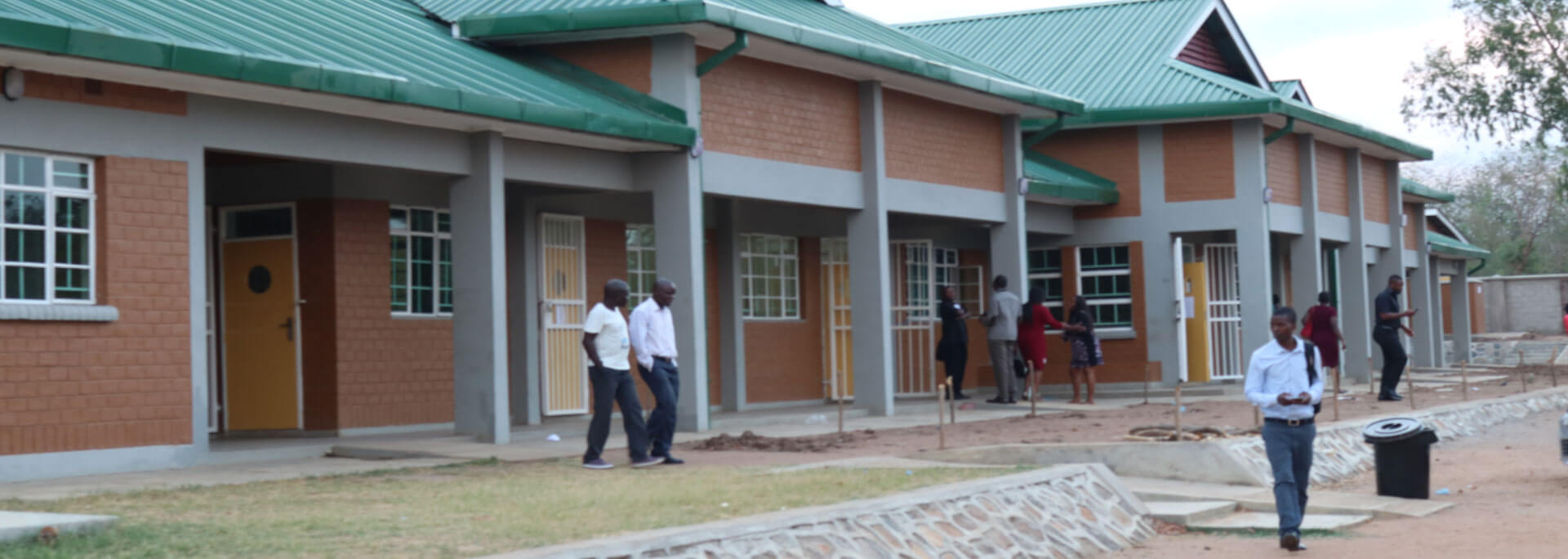The SHEAMA scholarship is the best thing to ever have happened to us. We are well equipped to be industrious and create jobs for ourselves and others.Fanny Donda
In Malawi, with one of the lowest incomes in the world, creating jobs for youth remains a struggle with millions of youths languishing in poverty.
According to the International Labour Organization, general unemployment in Malawi increased at 6 percent in 2020 as compared to 5.6 percent in 2019. And, in its Global Trends for the Youth (2015) report, ILO notes that in lowest income countries like Malawi, at least three in four young workers fall in the category of irregular employment, while nine in 10 young workers remain in informal employment.
Such was the nightmare for three young men — Bright Gunda (24), Joshua Kacheyo (20) and Nasson Blenard (25) from Nathenje on the outskirts of Malawi’s capital, Lilongwe.
The three graduated from community day secondary schools in the past three years and, having failed to secure a place at any of the country’s public universities, they stayed home, their dreams of ever attaining a university qualification and getting a job but shattered.
“I was fast drifting into becoming a delinquent. Most of my peers were drinking, smoking and committing felonies all due to idleness,” confesses Nasson.
In Malawi, diverse impediments currently leave over 80,000 secondary school graduates each year without access to higher education and literally condemns the youth to joblessness as they lack requisite employable skills.
Thanks to USAID-funded Strengthening Higher Education Access in Malawi Activity, the three attended a four-month certificate in electrical installation course with the Malawi University of Business and Applied Sciences under open, distance and e-learning and qualified for full scholarships from the project. The course was developed by the Department of Electrical Engineering with input from the industry to address gaps in the sector.
The three, alongside 92 other ODeL students, were drilled in fundamentals of electrical engineering, health safety and standards, and domestic installation and industrial installation, among others concepts.
The three then went through a one-week hands-on at the college and later industrial attachment. Today, four months after their internship, the three young men still stick together securing jobs in their community and Lilongwe city.
“We have a plan, that is why we still stick together,” says Joshua, the youngest of the three, “We plan to register with the Malawi Energy Regulatory Authority so we can have a company and do big electrical installation jobs.”
The three have the reason to dream big. There are many government construction works in their community and, if they get registered with relevant authorities, they can tap into that. They can also thrive on recurring jobs such as domestic electrical installation.
“The ODeL program from MUBAS and the scholarship from SHEAMA have given us the reason to believe in ourselves and look into the future with hope,” he says, adding, “We are already assembling our equipment from the proceeds that we make.”
Since their course four months ago, the three have installed electricity in more than six houses including a maize meal in their area. Now that they have graduated from the college, their confidence has even increased.
“We have saved some cash from the proceeds of our jobs and bought some of the equipment we will need. We will register with the business registrar in early June,” says Joshua.
The three are not the only young people gearing up for self-employment either as individuals or as teams. Another student is 18-year-old Fanny Donda. She and three other SHEAMA scholars, whose internships involved installing electricity to staff houses at the Maritime Defense Force in Monkeybay, are also looking at prospects of self-employment.
“The ODeL program and the SHEAMA scholarship is the best thing to ever have happened to us. We are well equipped to be industrious and create jobs for ourselves and others,” she says.
Workforce Development specialist at SHEAMA, Emmanuel Magomero, says he is not surprised that some students are already working in groups and planning to set up small companies.
“This resonates well with SHEAMA’s goal to increase the numbers in the skilled and employable workforce including self-employment. The courses are industry-driven and designed in such a manner that the graduates come out well equipped for self-employment,” he says.
SHEAMA is being implemented by Arizona State University with its consortium partners that include Overseas Strategic Consulting; Malawi’s five public universities — Mzuzu University, Lilongwe University of Agriculture and Natural Resources, Chancellor College, Malawi university of Science and Technology and MUBAS; and local industries.
The goal of SHEAMA is to increase Malawi’s skilled and employable workforce — especially adolescent girls and young women, or AGYW, and vulnerable young men. By the end of the project, SHEAMA will have enabled 14,940 students to attend tertiary education with 5,976 of them being AGYW or otherwise vulnerable and disadvantaged youth.
